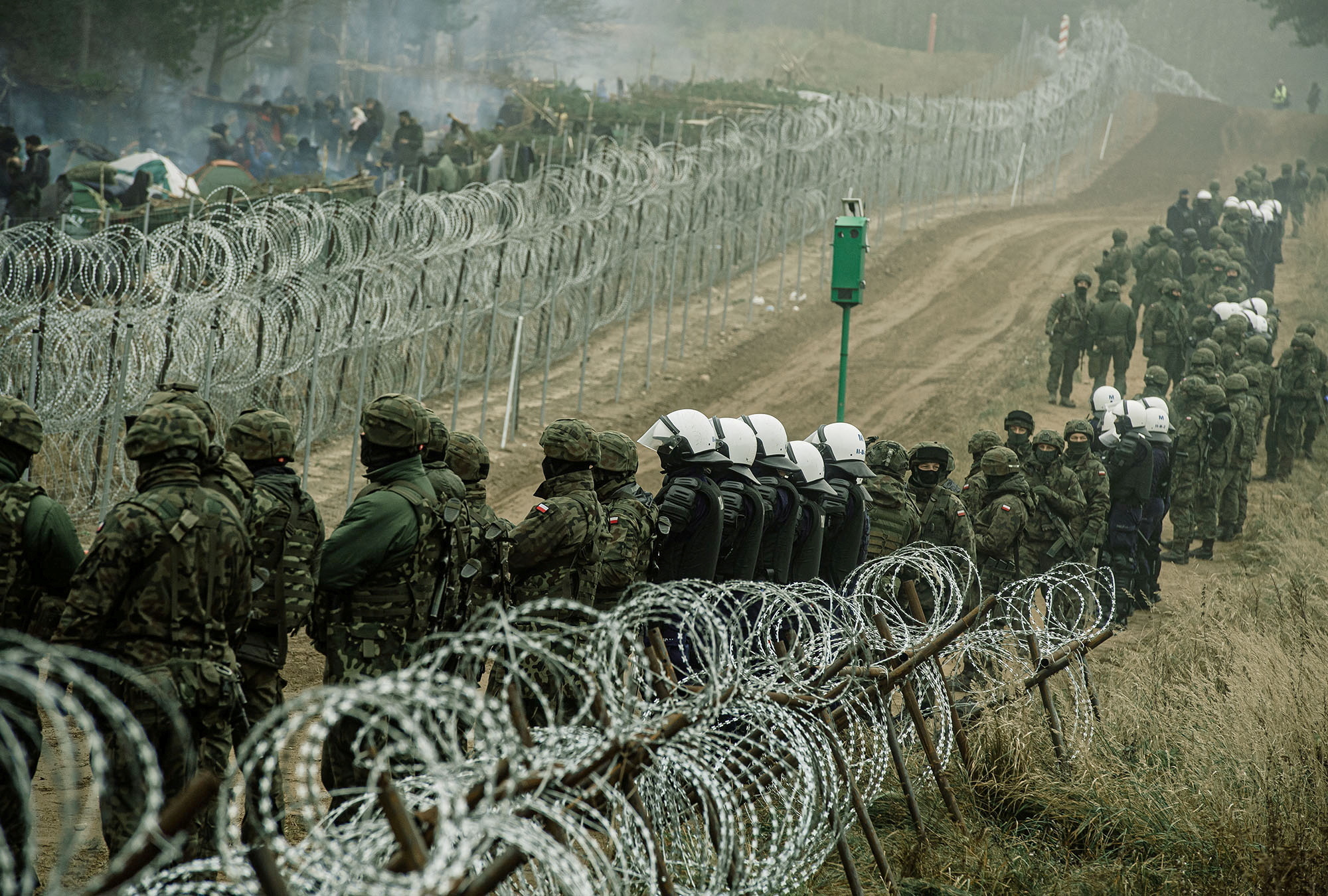
Willie R. Tubbs, FISM News
[elfsight_social_share_buttons id=”1″]
This weekend, following weeks of standoff and rhetorical jousting over the thousands of migrants gathered along the Belarus-Poland border, a new sign emerged that a breaking point has been reached.
According to a report by Reuters, on Sunday about 50 migrants broke through Poland’s border defenses near the Polish village of Starzyna. This came one day after Polish officials announced 223 separate attempts had been made by migrants to force entry into the nation, and followed days of border standoffs.
Polish Prime Minister Mateusz Morawiecki has threatened to trigger NATO Article 4, an official request for consultation when a NATO member feels its political independence or security is threatened.
Reuters quoted Morawiecki as saying, “We are discussing with Latvia, and especially with Lithuania, whether to trigger Article 4 of the NATO treaty. It is not enough just for us to publicly express our concern – now we need concrete steps and the commitment of the entire alliance.”
Polish authorities said all migrants who broke through the reinforced border were captured and returned to a zone established just inside Belarus, where temperatures have dipped below freezing. However, Poland’s police said they expect even more forceful attempts to be made in the coming days.
Both Polish and European Union officials have accused Belarus, under the leadership of Alexander Lukashenko, of flying migrants into Belarus and then hurrying them to Belarus’ borders with European Union nations as a means of pressuring the EU into removing sanctions against the Lukashenko regime.
Stanisław Żaryn, the spokesman for Poland’s security services, tweeted out details of how Lukashenko is conducting a “hybrid warfare effort against the EU”:
The artificial migration route opened by #Lukashenko is there to destabilize Poland, Lithuania and Latvia. It’s a #hybrid warfare effort against the #EU. Lukashenko won’t stop and he will break all rules to achieve his goals. pic.twitter.com/3ScUkkgWPH
— Stanisław Żaryn (@StZaryn) November 14, 2021
In addition to allegedly orchestrating a migrant crisis, Lukashenko also recently threatened to cut off Europe’s access to gas from Russia; this as the EU considers adding, rather than subtracting, from its list of sanctions.
After a meeting with Morawiecki, European Council President Charles Michel said in a release there are “tools available to us, which we are willing to activate unless there is an end to the [behaviors] enabling this system that threatens the lives of men, women and families whose plight is being cynically used and exploited.”
The United States has also rallied to the side of Poland, and on Saturday, Secretary of State Antony Blinken held a phone call with Polish Foreign Minister Zbigniew Rau.
“[Rau] presented the criteria which Poland will consider when judging the situation on the Polish-Belarusian border and when taking further decisions,” a statement from Rau’s office reads. “Poland’s top diplomat thanked for the United States’ political support and discussed opportunities for further cooperation, bilaterally and in the context of international organizations, including the EU and NATO.”
According to Fox News, President Joe Biden on Friday called the situation in Poland a “great concern.” In August, the Biden administration sought a “fresh approach” to dealing with Lukashenko in the wake of a controversy over Belarussian authorities attempting to abduct one of their own athletes from the Summer Olympics.
NATO also joined the chorus of voices condemning Belarus.
“The North Atlantic Council strongly condemns the continued [instrumentalization] of irregular migration artificially created by Belarus as part of hybrid actions targeted against Poland, Lithuania, and Latvia for political purposes,” a statement reads.
The only meaningful ally Belarus has is Russia. President Vladimir Putin has long backed Lukashenko, and over the weekend, according to a pair of Reuters reports, simultaneously offered to help resolve the crisis, denied Belarus was using migrants for political gains, and blamed the West.
Widely regarded as a dictatorship – indeed Lukashenko is often referred to as “Europe’s last dictator” – Belarus has long been criticized by human rights organizations.
Human Rights Watch reports that Belarus routinely punishes citizens, journalists, attorneys and activists who seek to hold the government to account, denies its citizens internet freedom, prevents peaceful protests, and meddles in elections.
“[In 2020] Authorities launched hundreds of politically motivated criminal cases against political opposition members, protesters, and their supporters,” a Human Rights Watch Report reads. “In many cases they detained, beat, fined, or deported journalists who covered the protests and stripped them of their accreditation. They temporarily blocked dozens of websites and, during several days, severely restricted access to the internet.”
Lukashenko has been president of Belarus since 1994.
